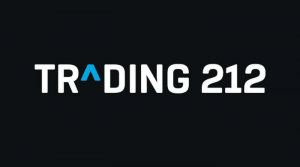Japan takes Switzerland’s place as 5th largest financial center in the world
Japan has now outstripped Switzerland as the worlds 5th largest financial center, despite its market being completely domestic, whereas Switzerland is renowned for being one of the world’s most international market places.

In terms of the structure of its financial markets economy, Japan is something of a conundrum.
Despite the country’s relatively compact size and 128 million population, it is a financial powerhouse, however the major difference between Japan and the financial systems of other nations is the domestic market focused nature of the entire economy.
For this reason, it is particularly interesting that Japan has now overtaken Switzerland, a country whose economy is completely the opposite of that of Japan, the Swiss banking environment being the darling of international investors from all corners of the globe compared to insular Japan.
Japan, whose major financial city is its capital, Tokyo, has outstripped Switzerland in key areas of business environment, financial sector development, human capital and reputation, gaining three places putting it in 5th place globally, pushing Switzerland, whose major financial city is Zurich, into 6th place worldwide.
A very different structure exists between the two nations, Japan being a retail electronic trading giant, its major companies, DMM Securities, GMO Click, Invast and MONEX Group accounting for 35% to 40% of all global retail FX volume, with absolutely no international reach whatsoever.
Quite simply, Japan’s gigantic retail FX companies, of which GMO Click and DMM Securities regularly report monthly volumes in excess of $1 trillion per company, are Japan-centric, with a loyal Japanese client base and no overseas aspirations, yet they are the largest in terms of volume in the world.
This also applies to overseas firms wishing to enter the Japanese market – it is for the most part completely impenetrable by non-Japanese companies. Many have attempted entry, and after substantial cost, realized that it is an environment for domestic firms providing services to domestic customers.
30 years in the making, Japan is now a global giant with a domestic audience
The history of Japan’s financial structure is interesting indeed. Japan’s securities markets increased their volume of dealings rapidly during the late 1980s, led by Japan’s rapidly expanding securities firms.
There were three categories of securities companies in Japan, the first consisting of the “Big Four” securities houses (among the six largest such firms in the world), those being Nomura, Daiwa, Nikko, and Yamaichi.
The Big Four played a key role in international financial transactions and were members of the New York Stock Exchange.
Nomura was the world’s largest single securities firm; its net capital, in excess of US$10 billion in 1986, exceeded that of Merrill Lynch, Salomon Brothers, and Shearson Lehman combined.
In 1986, Nomura became the first Japanese member of the London Stock Exchange. Nomura and Daiwa were primary dealers in the United States Treasury bond market. The second tier of securities firms contained ten medium-sized firms.
The third tier consisted of all the smaller securities firms registered in Japan. Many of these smaller firms were affiliates of the Big Four, while some were affiliated with banks. In 1986 eighty-three of the smaller firms were members of the Tokyo Securities and Stock Exchange.
Japan’s securities firms derived most of their income from brokerage fees, equity and bond trading, underwriting, and dealing. Other services included the administration of trusts. In the late 1980s, a number of foreign securities firms, including Salomon Brothers and Merrill Lynch, became players in Japan’s financial world.
Japanese insurance companies became important leaders in international finance in the late 1980s. More than 90% of the population owned life insurance and the amount held per person was at least 50% greater than in the United States.
Many Japanese used insurance companies as savings vehicles. Insurance companies’ assets grew at a rate of more than 20% per year in the late 1980s, reaching nearly US$694 billion in 1988.
The life insurance companies moved heavily into foreign investments as deregulation allowed them to do so and as their resources increased through the spread of fully funded pension funds. These assets permitted the companies to become major players in international money markets.
Nippon Life Insurance Company, the world’s largest insurance firm, was reportedly the biggest single holder of United States Treasury securities in 1989.
These days, things are just as strong. Despite a financial crisis that did substantial damage to Japan’s progress which struck the country in 2008 and has lingered, its GDP having contracted toward the end of 2008 at a rate of 12.1%, which is far worse than the US whose GDP contracted by 6.3% in the midst of the global financial crisis but the Japanese problem was created by a different cause than that of the US and other Western markets.
Whilst toxic assets, retail debt and housing collapses blighted Western markets, Japan’s huge financial crisis was caused by lack of external demand. Japan had built its economy on the manufacture and export of cars, electronic goods and high technology, however with strong competition from China and South Korea, Japan found itself surrounded by competitors which were making an equally good quality product with much less overhead costs.
Regardless, Japan continued to progress as a financial markets center rather than a legacy manufacturing center – a smart dynamic indeed.
Switzerland has rock-solid, vault-like security, attractive taxation rules and cutting edge market infrastructure environment which requires all electronic trading firms to build, house and completely ringfence their infrastructure – no hosting on collocated servers in LD4 or NY3 for Swiss companies!
IG Bank (Swiss division of IG Group), Swissquote and Dukascopy nestle among Geneva’s highly sophisticated financial institutions, bastions of modernity and highly advanced proprietary technology, as well as having to be a bank which means individually segregated accounts for retail customers.
Despite this, their volumes and revenues are completely overshadowed by the Japanese firms, despite the international audiences of the Swiss firms compared to the domestic nature of those in the land of the rising sun.
Japan’s elevation to the fifth slot now means that out of the top 5 financial centers in the world, three are in the Asia Pacific region.
London leads the way, followed by New York, however Singapore overtook Hong Kong earlier this year to take the third position, with Hong Kong now in 4th position, joined by Japan now in 5th.
The Asian tigers are not just roaring, but going from absolute strength to strength.









